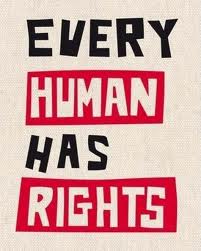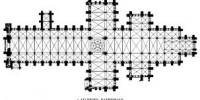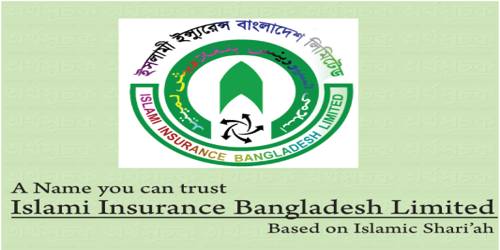Introduction
Fundamental rights in the Constitution of Bangladesh, and the national human rights instruments acceded to by Bangladesh, provide the normative framework for protection of human rights and access to justice for all people. In practice, violations of civil and political liberties, arbitrary detention, excessive use of force and extra-judicial executions, risks to personal safety and security, and violence against women are widespread.
The lack of national institutions to uphold human rights became an acute barrier in ensuring access to justice in Bangladesh. The need to establish a National Human Rights Commission, to take initiative for a strong independent Judiciary separated from the Executive, and raising awareness of international human rights norms have long been considered indispensable to uphold the constitutional rights of the people ensuring free and fair rule of law in the country. However, positive steps have been taken by the present interim government during the course of 2007. The commitment towards ensuring human rights for the people is shown through the membership of Bangladesh in the UN Human Rights Council. An Ordinance for the establishment of the Bangladesh National Human Rights Commission (BNHRC) has been proclaimed in December 2007 and the Judiciary has been formally separated from the Executive. An organogram for the Supreme Court has been finalised and a draft Attorney Service Legislation has been prepared by the government to support and strengthen the separated judiciary.
FUNDAMENTAL RIGHTS IN BANGLADESH
Fundamental Rights The fundamental rights of the people of Bangladesh have been enshrined in the constitution of the country. All past laws inconsistent with these rights were made void by the Constitution, and it enjoined upon the State not to make any law inconsistent with these rights. Certain rights may, however, remain suspended under the provisions of articles 141(a), 141(b) and 141(c) during an emergency arising out of a threat to the country’s security or economic life.
Fundamental rights give the citizens dignity of life in an atmosphere of freedom and justice beyond the man-made fetters that had constricted their physical and mental horizons. Modern judiciary is regarded as an excellent product of civilization to put the concept of justice to work in the midst of divergent forces with conflicting class or individual interests. Such conflicts make it difficult to bring about equilibrium in the society for a peaceful and orderly association of citizens for their common good. An independent judiciary and strong democratic institutions are the best guarantee against assaults on the rights of the citizens.
The fundamental rights in Bangladesh are listed under Articles 27 to 44 of Part III, and the jurisdiction of the high court Division of the Supreme Court to enforce the rights is defined in Article 102 of Part Vl of the Constitution of 1972.
Articles 27 and 28 of the Constitution provide that all citizens are equal before law and are entitled to equal protection of law, and the State shall not discriminate against any citizen on grounds only of religion, race, caste, sex or place of birth. Article 31 and 32 provide that to enjoy the protection of the law, and to be treated in accordance with law, is the inalienable right of every citizen, and no action detrimental to the life, personal liberty, body, reputation or property of any person shall be taken except in accordance with law. Article 29 provide that there shall be equality of opportunity for all citizens in respect of employment or office in the service of the Republic irrespective of religion, race, caste, sex or place of birth. Nothing in this article shall prevent the State from making special provision in favor of any backward section of citizens for the purpose of securing their adequate representation in the service of the Republic.
Article 33 provides that no person who is arrested shall be detained in custody without being informed of the grounds for such arrest, nor shall he be denied the right to consult and be defended by a legal practitioner of his choice. Every person who is arrested and detained in custody shall be produced before the nearest magistrate within a period of twenty four hours of such arrest, and no such person shall be detained in custody beyond the said period without the authority of a magistrate except in the case of any person who for the time being is an enemy alien, or who is arrested or detained under any law providing for preventive detention.
Article 34 guarantees that all forms of forced labor are prohibited, and any contravention of this provision shall be an offence punishable in accordance with law. Nothing in this article shall apply to compulsory labor by persons undergoing lawful punishment for a criminal offence, or required by any law for public purposes.
Article 35 provides that no person shall be convicted of any offence except for violation of a law in force at the time of the commission of the act charged as an offence, nor be subjected to a penalty greater than, or different from, that which might have been inflicted under the law in force at the time of the commission of the offence. Every person accused of criminal offence shall have the right to a speedy and public trial by an independent and impartial court or tribunal established by law. No person shall be subjected to torture or to cruel, inhuman, or degrading punishment or treatment.
Article 36 provides that subject to any reasonable restrictions imposed by law in the public interest, every citizen shall have the right to move freely throughout Bangladesh, to reside and settle in any place therein and to leave and re-enter Bangladesh.[1]
As per Articles 37 and 38 every citizen shall have the right to form associations or unions, to assemble and to participate in public meetings and processions peacefully and without arms, subject to any reasonable restrictions imposed by law in the interests of morality, public order or public health. Freedom of thought and conscience is guaranteed in Article 39 of the Constitution. Subject to any reasonable restrictions imposed by law in the interests of the security of the State, friendly relations with foreign states, public order, decency or morality, or in relation to contempt of court, defamation or incitement to an offence the right of every citizen to freedom of speech and expression, and freedom of the press are guaranteed.
Article 40 provides that subject to any restrictions imposed by law, every citizen shall have the right to enter upon any lawful profession or occupation, and to conduct any lawful trade or business. As per Article 42 of the Constitution every citizen shall have the right to acquire, hold, transfer or otherwise dispose of property, and no property shall be compulsorily acquired, nationalised or requisitioned save by authority of law.
Article 41 provides that every citizen has the right to profess, practice or propagate any religion, and every religious community has the right to establish, maintain and manage its religious institutions.
According to Article 43 every citizen shall have the right to be secured in his home against entry, search and seizure, and to the privacy of his correspondence and other means of communication.
Article 44 guarantees the right of every citizen to move the High Court Division in accordance with clause (1) of Article 102 for the enforcement of any of the fundamental rights conferred by Part III of the Constitution.
CIVIL RIGHTS IN BANGLADESH PERSPECTIVE
Bangladesh is not a classical case of civil rights. The level of awareness about the fundamentals of civil rights is still very poor. At the same time, civil rights of the people have been neither clearly defined nor practiced, as the Western theory of such rights does not match in the Bangladesh perspective. In a society like this where most people do not afford to fulfill basic needs of the families, the question of traditional notions of civil rights appears to be a sheer fashion, let alone establishment of the superstructure of the society.
The Constitution of Bangladesh imitates the concept of civil rights, making the state, or in other words the government, as the guarantor. But do the people and the individuals enjoy what is called civil rights even as per existing criteria? If the answer is NO, then who is responsible and what are the major hindrances? Since the government is made the protector of civil rights, alongside many other things, it could be blamed for violations as such.
Furthermore, it is the state, which rather created troubles and pitfalls – deliberately or inadvertently. Someone could not have criticised the government, had the people lived in an anarchic society. Interestingly enough, leaders and bureaucrats while in power nurture an alien structure, which victimises all except them and their term of being victimised comes one day after relinquishing power. So, the structure is not for the people, anyhow.
For example, a person suffered six years in detention without trial and finally got acquitted. Who will pay for this harassment? Again, a busy businessman or a common citizen is compelled by the Prime Minister’s security guards to stay 2-3 hours on a Dhaka street, what can s/he do for his/her disturbances or the losses incurred? The Constitution tells about equality and liberty of the citizens. Can anyone move freely, act fairly and enjoy the civic amenities? In Bangladesh, the proposition of civil rights tends to be only lip-services.
In spite of the negative aspects of civil rights, there are strong values and inherent ideal thinking, which can be translated into civil rights to make suitable in the local institutions. It is difficult to accept how a Westerner will be able to understand and prescribe civil rights the Bangladeshis require. The extremely individualistic individuals do not have salvation for the self, not to mention the society.
The ideas of civil rights in Bangladesh context should be multi-dimensional. The country’s government and specially intelligentsia failed to promote those to compose unique definition of civil rights. It’s high time the citizens redefined their civil rights. From within the complicated composition of socio-political realities, voices are being raised to assert civil rights. That is only the ray of hope as yet.
FORCED MARRIAGE VIOLATION OF FUNDAMENTAL & HUMAN RIGHTS
Forced marriage is a dark chapter of violation of human rights in all its multitudes in Bangladesh. It is the surname of rape, slavery, trafficking, forced pregnancy, torture, cruelty and what not as enshrined in the Universal Declaration of Human rights. The right to marry, including the requirement of free and full consent by each of the intending spouses, is clearly established under international human rights law and protected by national laws in many jurisdictions. However, customary and traditional practices, exacerbated by ineffective enforcement of the law, and inappropriate policies and procedures, constrain the practical realization of this right. Forced marriage is a practice which continues to affect women, men and children across diverse countries, cultures and communities. Despite increasing concern nationally and internationally regarding the issue, awareness of the availability of remedies for forced marriage remains limited.
Forced marriage is defined as a marriage contracted without the free and valid consent of one or both parties. Forced marriage is chiefly characterized by the absence of consent. A marriage becomes forced if there is any duress, whether physical or mental to marry without free and valid consent.
Forced marriage is multi-dimensional and multifaceted phenomena and it is impossible to draw a stereotypical sketch as per the causes of forced marriage. Some of the key motives that have been identified are: controlling unwanted behavior and sexuality, poverty, lack of awareness, lack of proper education, religious superstition, peer group or family pressure, attempting to strengthen family links, ensuring land remains within the family, protecting perceived cultural ideals which can often be misguided or out of date, preventing “unsuitable” relationships, e.g. outside the ethnic, cultural, religious or caste group, assisting claims for residence and citizenship, family honor, and last but not least long-standing family commitments.
Rape, murder, teenage pregnancy, disrupted education, nervous breakdown; neurological disorders and suicide are all fruits or forced marriages. The consequences of forced marriages are repeated violations of human rights. Forced marriages are considered domestic violence, as victims often suffer physical violence, rape, false imprisonment, abduction, sexual, mental and emotional abuse and enslavement. Forced marriage is a means of controlling female sexuality and women’s autonomy. In the most extreme cases, it may also involve physical violence, abduction, false imprisonment, rape or sexual abuse, and murder.’ According to ICC “–no need to treat forced marriage as a crime separate to sexual slavery–.” The initial consequences of this are rape and forced servitude, which can be interpreted as a form of slavery. The forced marriage goes against the liberty of conscience.
The controversial and hidden nature of forced marriage makes statistics of its incidence difficult to compile. The evidence and existing statistics show that the vast majority of the victims of forced marriage are young girls and women, making it a gender specific problem. Women in Bangladesh who have turned down marriage proposals have been subjected to acid attacks, in which attackers try to burn and disfigure their victims by throwing acid at their face or body (Reuters 1 Nov. 2005). According to a United Nations Children’s Fund (UNICEF) representative in Bangladesh, cited in a United News of Bangladesh (UNB) news release, the rate of early marriage in Bangladesh is among the highest in the world (UNB 14 Dec, 2005). One in three teenage girls in Bangladesh is already mother. Nearly two in every three Bangladeshi young women are married before the legal age of 18(The National Institute of Population Research and Training 2004). Though there is no specific data, it could be assumed from the ground reality that 78% marriages in Bangladesh are forced marriage where the women and children are the worst sufferers.
The international community adopts multifaceted and multidimensional documents to project and preserve human rights and prohibited forced marriage as it involves breach of a number of international human rights norms. Most central of these is the rights to marry (UDHR, Art 16; ICCPR, Art 23; ICESCR, Art 10; CEDAW, Art 16; the Convention on Consent to Marriage. Art. 1; the ECHR, Art 12 and it is Protocol 6, Art 5 and the Beijing Platform for Action, para 274). This includes the rights to decide when and whom to marry. With respect to minors, forced marriage has been found to include the practice of child marriage, as children do not have the capacity to give consent .It has also been identified as a form of discrimination against the girl-child. Indeed, several international bodies have called for a minimum age of marriage to be established by law. Forced marriage also implicates the rights to personal liberty and security and the right to freedom from arbitrary detention. It may also involve breaches of the right to access to justice; the right to equality before the law and equal protection of the law; the right to an effective remedy and the right to freedom from gender based discrimination.
The more extreme cases may infringe the right to life and the right to bodily integrity, including freedom from gender-cased violence. They may also be considered to constitute acts of slavery (UDHR, Art4; ICCPR, Art8; and ECHR, Art 4). Further, forced marriage has been considered to be a form of trafficking of women or children, which itself constitutes a contemporary form of slavery (CEDAW art.6; CRC, Art 11). In the context of forced marriages, contracting parties are responsible for human rights violations if they fail to act or to exercise due diligence in preventing, investigating and punishing cases of forced marriage. International human rights law creates a duty to modify or abolish existing customs or practices which constitute discrimination against women and insofar as forced marriages clearly discriminate against women, there is an obligation to end the practice (CEDAW, Arts 2(f) and 5).
The habeas corpus petitions may be brought before the High Court, either in the form of a writ petition filed under the relevant provision of the Constitution (Art. 102(2) (b) or as a criminal miscellaneous petition under s 491 of the Code of Criminal Procedure, 1898. Abduction and forced marriage is explicitly criminalized in Bangladesh (Penal Code 1860, s 366 also Violence against women and Children (Special Provisions) Act).In extreme cases, prosecutions may also be brought for offences committed in the course of a forced marriage, such as murder, rape, slavery (Penal Code 1860, ss 370-71) and wrongful confinement (Penal Code 1860, s 365). In the case of minors, prosecutions may be brought for procreation or importation of minors (Penal Code 1860, ss 366A and 366B) and the solemnization or failure to prevent the solemnization of child marriages (CMRA 1929, ss 5 and 6. Civil remedies for forced marriages are available through jactitation of marriage, or judicial divorces or other proceedings, as specified under the MFLO or the DMMA. Option of puberty is another resort (Section 2 (vii) of the DMMA). Courts also have the power to issue injunctions to prevent a child marriage (Section 12 of the CMRA).
Currently there is no specific law to prevent forced marriages. The right to marry is not explicitly protected by legislation in Bangladesh. No provision in existing legislation states that forced marriage is unlawful and a civil wrong.
Discriminatory family laws and their conservative interpretation, limit the remedies available to women regarding divorce or annulment in cases of forced marriage.
Women’s lack of awareness and their limited capacity to negotiate their rights are very fundamental causes of forced marriage. There are gaps in the law and practical obstacles to access to and implementation of the law, which severely limit its impact in addressing forced marriage. Procedural limitations also restrict access to remedies. In Bangladesh, marital rape is excluded from the Penal Code and it is never treated as rape. Practical obstacles to accessing and enforcing the law constitute the most significant hurdle to legal redress for victims of forced marriages and those seeking to assist them.
Forced marriage is clearly prohibited under the laws of Bangladesh and it violates fundamental rights under the Constitution and human rights. Concerted and immediate action is needed to end this by collective endeavor of GO, NGO and civil society. Forced marriage should be made a specific criminal offence. Forced marriage, its reasons and negative impact should be pressed through various manoueuvre.It needs to be treated as an issue of serous violation of human rights and gender violence. Multi-agency data capture system should be launched.
It is necessary to develop of consular conventions with various countries of the world. Judicial co-operation between the countries concerned to share developments in case law and practice designed to ensure the protection of the rights of victims of forced marriage. Gender sensitization training for all the stake holders should be arranged. Legal and other logistic support should be amplified. Sexual intercourse without consent should be considered as rape, regardless of whether this occurs within the confines of a marriage.
POLICE REMAND AND THE NEED FOR JUDICIAL ACTIVISM
Increasingly, the magistracy controlled by the executives becomes insensitive to civil liberties. Denial of bails, indiscriminate granting of
police remand, the alleged torture of person(s) arrested in police custody creates genuine concerns. What a number of advocates of Bangladesh Supreme Court told in a recently held Bar Council seminar organised for the new entrants to legal profession clearly reflects the situation. “The Magistracy virtually turns into an extension of the Police. In earlier days, magistracy was not so; magistrates were the real friends of the people whose liberties were at stake. The situation is getting worst.”
Widespread torture of detainees is common in criminal investigations in Bangladesh in all regimes, and has become an unmistakable feature of the government’s crackdown against independent and political voices. Persons detained by police are routinely subjected to physical and psychological abuse, often from the initial moments of their arrest. The concerned authority often refuses to hold police and security forces accountable for acts of torture, and even tacitly encourages torture though its broadcasting of political prisoners’ public “confessions” as tools of political propaganda. Instituting legal and judicial reform to halt torture, and ending impunity for it, should be a matter of priority for the government of Bangladesh and for all parties interested in human rights and the security and stability of the region.
Unqualified use of the qualified power of arrest A lot have been written on the abuse of the Section 54 of the Code of Criminal Procedure. The Code of Criminal Procedure, 1898 deals with some of the crucial procedural elements of the power and function of the police. Chapter V of the Code particularly deals with procedure and mode of arrest of which section 54 is of utmost important. It grants police qualified power of arrest any person on reasonable suspicion without warrant on nine grounds Practically section 54(1) is the most abused section of the Code. The Police, in fact do not comply with the provision in its totality. They bluntly ignore the qualifying terms mentioned in the section e.g., cognisable offence’ ‘reasonable complaints’, ‘credible information’, and reasonable suspicion’. It is being indiscriminately used by the police and as application of this section fraught more with ulterior motives than prevention of crimes and or arrest of persons suspected of having committed or about to commit cognisable crimes. Most of the arrests under section 54 are caused on fanciful suspicion and in most cases to fill in the quota allotted to an individual police officer to make an arrest each day. This incredible practice has been going on with impunity for many years. An arrest under section 54 is often a prelude to issuance of detention order under the Special Powers Act, 1974 (SPA). The SPA allows the authorities to detain any person on eight grounds, vague enough to detain any person according to the whim and caprice of the executives and the party in power. Such detention can extend to six months, and may extend beyond this period, if so sanctioned by the Advisory Board. The use and abuse of the SPA in the name of securing law and order have resulted in steady pattern of human rights violations. Successive governments have supported the continuation of this legal instrument that offer wide discretionary powers of detention.
Police Remand
Mounting numbers of torture and deaths in pre- and post-conviction detention facilities over the past three decades attest to the brutality of the treatment meted out against detainees and prisoners. Although the Constitution of Bangladesh prohibits torture, few law enforcement officers are held accountable for it.
Illegal action of the police personnel, in most cases, are either authorised or endorsed by a magistrate. Refusal to grant bail to a person accused of a bailable offence at the instance of police is an example police-magistrate joint collaboration. Section 167 of the Cr.P.C. allows the magistrate to grant police remand in custody beyond 24 hours for a total period of 15 days on request from the police after s/he satisfied that there are grounds for believing that the accusation or information is well founded” (Sec. 167.1 of the Cr.P.C.).
The term ‘remand’ is practically synonymous with torture for extracting confession. Like refusal of bail, granting of remand is another instance of police-magistrate joint solidarity, which at the end inspires the law enforcers to flout the legal safeguards more easily. In most cases, the magistrate does not ask for copy of the entries in the diary of the police officer making the investigation (Sec. 167.1 of the Cr.P.C). The magistrate in majority cases does not record his reasons with substance and clarity for allowing detention in the custody of the Police.
The criminal justice system lacks adequate procedural safeguards against police abuse, as it grants the prosecution wide powers concerning pre-trial custody, accesses to lawyers, and access to forensic evidence. Against the backdrop of such flagrant violations of the letter of the colonial law, the role of an assertive, pro-active higher judiciary becomes more important to break the unfortunate nexus between police and magistracy.
What is judicial activism?
The terms “judicial restraint” and “judicial activism” describe how a judge judges, that is, how he applies the law to facts in the cases before him. The difference is that restrained judges take the law as it is and activist judges make up the law as they go along. Judicial activism does not find any mention in the Constitution of Bangladesh, it is not defined anywhere but is widely talked about in all section of society, NGOs and bureaucrats. Assertion of Judiciary and its power is judicial activism, many people label it is over active judiciary. In South Asia, the Judiciary of India has created classic precedents of judicial activism for protecting human rights, human dignity and establishing good governance. Keshvanand Bharati Vs. Kesala, Minerva Mills Vs. Union of India, India of Gaudlis Vs. Raj Naraian & S.P. Vs. Union of India etc. are few landmark cases that highlight judicial activism.
Using judicial activism as a weapon Supreme Court gives directive through government. In Vineet Narayan Vs. Union of India, the famous Hawala case Supreme Court monitored the riweshgahous, it issued directives for CBI and intelligence services to be present in all hearings. He said that Judicial reforms are needed therefore judicial activism should go hand in hand with judicial restraint.
Restrained judges respect the political process, whether they agree with its results or not, until it clearly crosses a clear constitutional line. Activist judges feel free to re-write statutes or the Constitution, to use extra-legal factors in their decisions, to ignore limits on their power in the search for desirable results. However, in an established and well-balanced democratic system, judicial activism rarely adventures beyond certain limits. Because ultimately it is the Legislature, and the Executive created and sustained by the Legislature, that is accountable to the people whose will, after all, is sovereign.
The last hope?
The alarming trend of torture the hands of the law enforcers in Bangladesh exposes once again its inherent tendency of being viewed with a philosophy of paramilitarism associated with the mechanism of awe, threat and coercion. The culture of impunity endorses the existing trend and protects the culprits from being prosecuted. It encourages others to follow the suit, as the criminal justice system is open to manipulation by the agencies. The Supreme Court, as usual, remains the key institution for the protection of human rights of the bewildered. The traditional conservative doctrine of judicial restraint poses a serious threat to liberty, and is therefore not consistent with the fundamental objective of the framers of the Constitution of the People’s Republic of Bangladesh. The purpose of the desired judicial activism, in the words of Justice V. R. Krishna Iyer, a living legend in South Asian legal fraternity, “To obliterate procedural anfractuosities, to broaden the idea of locus standi, to enable the penurious many to exercise their right of access to judicial justice, to abolish expensive nuances and pachydermic chaos of interpretation so popular in British Indian lawyering practices and to establish free legal aid and public interest litigation these were forensic urgencies and jural necessities if the democracy of judicial remedies were to reach the indigent, illiterate and alienated Indians who would otherwise find the complicated court system “untouchable” and even not “approachable”.
The need of the hour is an organisational culture that condemns abuse of power and misuse of force and encourages pro people policing. All those who are concerned with the arrest, detention, and custody of the people, particularly of the poor and vulnerable sections of the society, must strictly implement the constitutional and legal protections and safeguards. It is necessary that the guardians of law and the custodians of lock-ups and prison houses should be made aware of the constitutional and legal rights of the people. For Bangladesh, an activist, goal oriented judiciary can limit the scope of executive arbitrariness ensure the implementation of its dictates.
WHEN A POLITICAL RIGHT VIOLATES SOME OF THE FUNDAMENTAL RIGHTS
Theoretically in every normative society there exist some ways and styles to demonstrate grievances collectively. These ways and styles differ from system to system, depending upon the status of the society, upon the differences of the mode of governances. Hartal is such a way to protest in the Indian sub-continent. Unfortunately, the hartal, which once emerged to ventilate grievances to the rulers or government or to the concerned authority regarding the democratic rights and the legitimate claims, has now turned to an absolute political weapon used sometimes to gain even a petty political interest. Now, it appears to be a great part of our political culture. As it proves a completely political issue, we cannot reasonably expect that the nation will come to a single unique decision whether hartal should exist any more in our political culture. Whatever be the decision, one must pay an earnest thought on the hartal issue since day by day it is becoming not only a matter coercive for the common public but also a thing undoubtedly baneful for the national state.
- Ø Historical background of hartal
Protestation is nothing new in the Indian society and history tells us many events where there were agitations for articulating different types of demands. Influenced by European trade unionist movements, the industrial workers of India had been observing occasional strike or dharmaghat from the first quarter of the twentieth century. This industrial strike or dharmaghat was conveniently extended to the political arena and took the name hartal.
Hartal is originally a Gujarati expression, which signifies closing down of shops and warehouses with the object of realising a demand. Essentially a mercantile practice, it acquires political significance in the 1920s and 1930s when MK Gandhi institutionalises it by organising a series of anti-British general strikes by the name ‘hartal’. After that hartal becomes a way to protest in whole Indian sub-continent. In today’s India it is popularly known as ‘bundh’. In Bangladesh, hartal is a constitutionally recognised political method for articulating political demand.
- A glimpse of hartals in our history
During the period between the 1920s and 1950s, there were so many hartals called against the British rule.
From the 1960s, political activists were increasingly organising hartal, which by then appeared to them to be a stronger political weapon. There had been hartal for days together on the eve of the Bangladesh War of Liberation. Indeed, politics of hartal had played decisive role in mobilising people on behalf of the Liberation War.
Hartal becomes a very frequently used political tool for agitations from the 1980s. In the face of recurring hartal, called mostly on the issue of legality, the regime of Hussain Mohammad Ershad (1982- 1991) collapsed. The government of Khaleda Zia put under tremedous pressure by the calling of relentless hartal by Awami League led opposition. Similarly, the government of Sheikh Hasina was also not free from the politics of hartal. And the present government is facing hartals now and then.
- Why for fundamental rights
A hartal, when called upon for the greater public interest, does not raise any question of fundamental rights of the citizens or economic loss of the nation. Because, public then spontaneously suffer the financial or others losses to make a hartal successful. For example, the hartals called for against the British or the then Pakistani rule in East Pakistan (Bangladesh) were to meet the ‘political demand’, which was actually the overwhelming public demand of a society or community.
But after the independence, the words ‘political demand’ encounters the usage of the same in narrow sense. Different political parties begin to resort hartal to meet their political demand signifying the demand of a particular political party, not of the whole community. So, the other members of the community or the parties against the hartal usually raise the questions of their fundamental rights to be violated and financial loss to be suffered by the observance of hartal. Hence, there comes the question to stop hartal, a political right, allegedly denying some other civil and fundamental rights of the citizens.
- Hartal in the eye of law
However, call for hartal per se is not illegal; rather, it is a historically recognised democratic right. Indeed, where an act is meant to be nothing but an expression of protest such an act cannot be said to violate the fundamental rights of the citizens. The calling for hartal, not accompanied by any threat, will be only an expression guaranteed as a fundamental right under the Constitution. And, therefore, any political organisation may call ‘hartal’ by extending invitation to the public in general or to a particular class or group of people.
Certainly, the freedoms as enunciated in the constitutional provisions cannot to be construed as a license for illegality or incitement to violence and crime. Hence, any attempt to enforce it or ensure that the hartal is observed makes the call illegal, resulting in interference with the individual right. At the same time, any kind of provocation, instigation, intervention and aggression by anti-hartal activists to foil the hartal is also unlawful. In a word, hartal, as a democratic right, should be observed as well as should be allowed to be observed peacefully without resorting to any illegal activities. (Khondoker Modarresh Elahi Vs The Govt of Bangladesh).
Actual scenario of hartals today
The actual scenario hartals today is that during hartal citizens are prevented from attending to their avocations and the traders are prevented from keeping open their shops or from carrying on their business activities. Also, the workers are prevented from attending to work in the factories and other manufacturing establishments leading to loss in production causing nations loss. And after every hartal, with our painful eyes and heartbreaking sighs, we have to see in the newspapers the pictures of wanton acts of vandalism like destruction of government and private properties, transport vehicles, private cars and three wheelers as well as rickshaws. These illegal acts in the name of hartal cannot be recognised as political rights protected by the Constitution.
In this respect, High Court of Kerala, in the case of Bharat Kumar Palicha and another Vs State of Kerala and others, held that the calling for and holding of bundh (hartal) by political party or organisation involves a threat expressed or implied to citizen not to carry on his activities or to practise his avocation on the day of bundh. It violates the fundamental rights of the citizens. The Supreme Court of India by its judgement reported in AIR 1998 (Supreme Court) 1984 upheld the judgement saying there was no right to call or impose bundh which interfere with the fundamental rights of freedoms of citizen in addition to causing loss in many ways.
What to do
Hartal should not be banned enacting law, because it will be a futile exercise for some practical reasons. In fact, it must be allowed to be exercised in the greater context of the nation as a whole for political and social development in democratic culture. What is necessary is to ensure that it is not resorted to unless a genuine cause for the welfare and greater interest of the people, failure to the government to respond to the demands or grievances raised by common public or by the opposition, and overwhelming public support in favour of hartal are present.
Another point is that the rights of assembly, meeting and processions, which nurture the right to call hartal, are not absolute, but rather regulated by law. Reasonable restrictions may be imposed in observance of hartal in the interest of public order. Again, when a call for hartal is accompanied by threat, it amounts to intimidation, for which any aggrieved person or party may take legal action against the caller for hartal under the ordinary law of the land. Besides, citizens, who think their fundamental rights are encountering threat due to hartal, can take the resort of article 44(1) and 102 of the Constitution to have their fundamental rights protected, and can thus restrict destructive mood of hartals to some extent.
Concluding remarks
Most important thing, therefore, is that our political parties have to be self-motivated that except a grave cause they will never indulge a hartal causing so much of sufferings to the national life. Hopefully, in the recent time we see there has been an auspicious start to the way of civilised political culture. Human wall, human chain, silent procession or procession with black scarf on faces, burning the party or organisation flags, burning effigy of the person being protested, arrangement for music on streets where protesters sing those songs containing fighting spirit, staging drama or play in public places, public assembly in the premises of Shaheed Minar are symbols signifying that our political culture is taking a positive turn. We, therefore, can expect that all concerned will realise that hartal in the way it is exercised now-a- days can never be a way to protest the activities of government or other organisations in a democratic and civilised society.
















